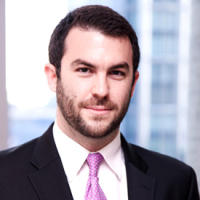Which “moderate” Arab president publicly hugged the genocidal leader of Sudan last week? Which Middle Eastern “reformer” just entered his 10th year of a four-year term? Which Western “ally” days ago ordered an investigation into a cartoonist for possibly drawing Mohammed?
The answer is Palestinian President Mahmoud Abbas.
These three stories barely made it into Western press. Why? Put simply, the bar has been set so low that they were not deemed newsworthy. An Arab leader who doesn’t allow elections? Yawn. A Middle Eastern president who embraces one of the worst mass murderers in recent history? Nothing to see here.
There is a tragic disconnect between Western rhetoric and Arab reality. Abbas, if one listens to leaders of the free world, is a moderate, reformer and ally. He is better than Hamas, after all, isn’t he?
Never mind that Abbas said in 2013, “There is no difference between our policies and those of Hamas.” The point is this: Being better than a genocidal terrorist organization does not a “moderate” make. Pretending it does demeans the word. It is condescending to Palestinians and insulting to true moderates.
Less than a month ago, Abbas marched in Paris in solidarity with the cartoonists who were murdered in the attack on the French satirical magazine, Charlie Hebdo. Last week, he ordered an investigation into a Palestinian cartoonist who may have drawn Mohammed.
Under Abbas’s rule, the Palestinian Authority has arrested activists for Facebook posts and jailed atheists. Two weeks ago, a 22-year-old student was imprisoned for insulting the head of the Palestinian Football Federation. Torture is rampant and Abbas refuses to hold elections, even though his term expired six years ago.
Last September in Ramallah, I confronted Alam Musa, minister for telecommunications in the Palestinian Authority. I asked him about the arrest of activists for Facebook posts against Abbas. “We have nothing to do with that,” Musa replied. “This could be a long time ago. Not nowadays.”
The very next day, the Palestinian Authority arrested several Palestinians for critical posts on social media.
I asked Musa if the Palestinian Authority allows full Internet freedom. “Definitely,” he replied. “As minister of Telecommunications, we are in charge of websites and we have no restrictions. No restrictions whatsoever.”
False. The Palestinian Authority censors websites and has jailed activists for online posts critical of their leaders.
Next to issues like war and peace, civil society and Internet freedom can seem quaint and unimportant. This is a grave mistake. The free exchange of ideas is the bedrock of public reasoning and social progress. It is also a bulwark against extremism. But how can moderate voices succeed if they are always silenced?
A modest solution is to begin by using the West’s immense political and economic leverage to encourage real democratic reform in the Palestinian Authority. Right now, the United States supplies about 10 percent of the P.A.’s annual budget of over $4.2 billion, yet reform has been cosmetic at best.
Decades of propping up Palestinian dictators from Yasser Arafat to Mahmoud Abbas have not solved the problem of radicalism—they’ve actually strengthened it. An unelected strongman like Abbas will not defeat extremism by investigating cartoonists, jailing critics and censoring the Internet.
Despite the risks, the West should also demand that Palestinians hold elections. A leader must have a mandate from his people if he is be effective in anything. Dealing honestly with the results of elections is a better prescription for long-term change than allowing a dictator to rule unchecked forever.
But even before elections, strengthening civil society and expanding space for dissent is a critical condition to defeating the twin threats of dictatorship and extremism. Linking hundreds of millions of dollars in aid to respect for human rights would be a powerful incentive for change.
Tyrants that stifle dissent are not moderates. The free world should stop pretending that they are. Giving a pass to Palestinian dictatorship serves no one—least of all the Palestinians.





